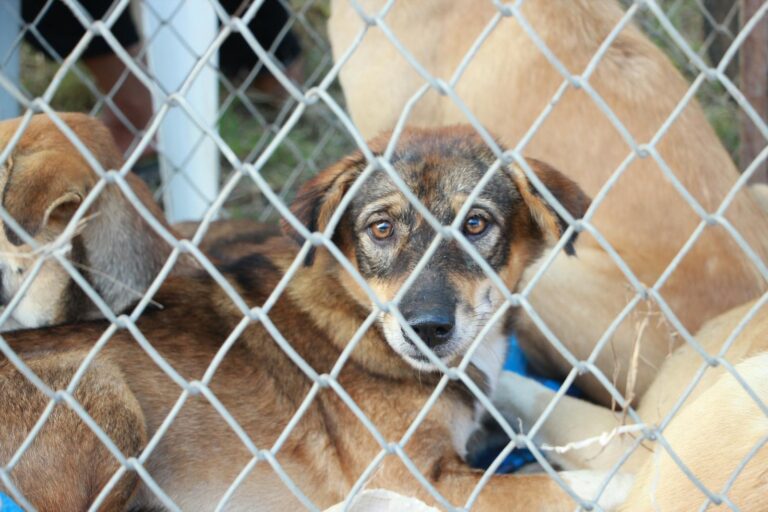If You Notice These 20 Signs In Your Dog, Call The Vet ASAP

Not all emergencies begin with collapse or visible pain. Some of the most dangerous conditions start quietly, tucked behind a single skipped meal or shift in posture. Some of these signs are easy to miss—but the earlier you catch them, the better your dog’s chances.
Sudden Weakness Or Brief Staggering

If your dog stumbles unexpectedly or lies down as if dizzy, don’t assume it’s harmless. Even a short episode can reflect serious heart issues, low blood sugar, or internal bleeding. They might recover quickly—but a fleeting symptom doesn’t mean it’s resolved. This is a situation where timing matters more than waiting.
Bloated Belly With Restlessness
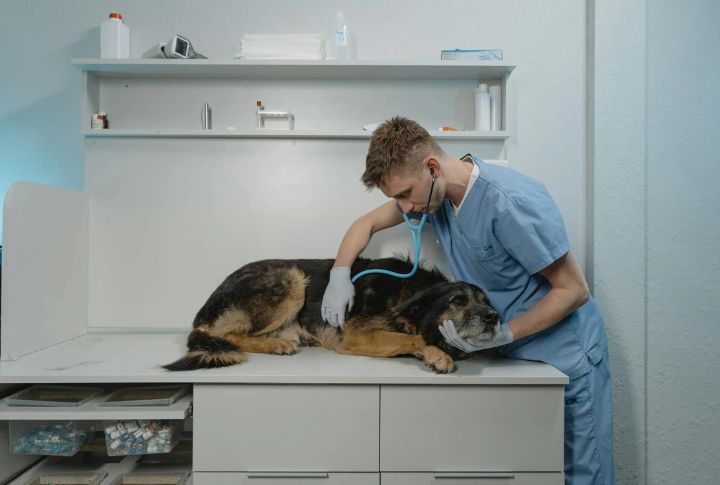
If your dog’s abdomen looks distended, feels unusually firm, and they’re pacing, retching without bringing anything up, or licking their lips repeatedly, it could point toward gastric torsion or gastric dilatation-volvulus. In GDV, the stomach fills with gas and twists, cutting blood flow. It’s life-threatening, especially for big dogs.
Changes in Gum Color
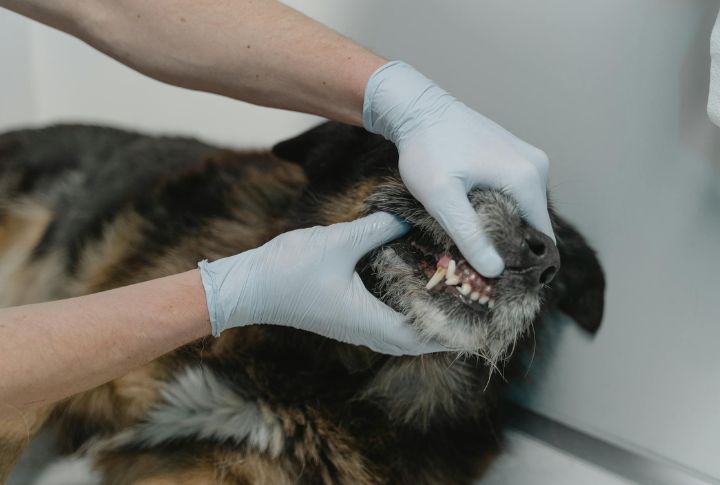
Lift your dog’s lip and check the color of their gums—they should be moist and bubblegum pink. If they look unusually pale or flushed, that’s a red flag. Some breeds do have darker gums, but any sudden change can signal poor circulation or internal bleeding.
Trouble Breathing Should Never Be Ignored

There’s regular panting, and then there’s labored breathing that’s hard to watch. If their nostrils are flaring or they’re standing with their neck extended like they’re trying to suck air in—it’s time to move. Difficulty breathing often means something is physically blocking the airway, or that fluid has started filling the lungs.
Minor Tremors or Twitching

A dog doesn’t have to fall over to be seizing. Some episodes are barely noticeable—like a blank stare or a single limb twitching repeatedly. Even a few seconds of strange behavior can be important. These subtle signs often go ignored, but they may be early warnings of serious neurological issues.
Blood Where There Shouldn’t Be

Blood in saliva, on a toy, or in stool—even once—shouldn’t be dismissed. Small bleeds can be early signs of internal damage or toxic exposure. Even when the dog seems fine, that small trace may be the first and only sign something’s brewing beneath the surface.
Sudden, Extreme Behavior Swings
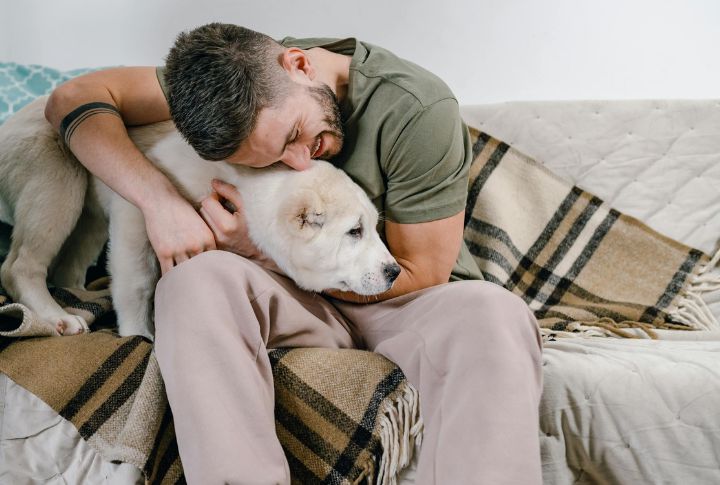
A quiet dog that suddenly snaps or relentless pacing when calm used to be the norm—those extremes speak volumes. Pain often presents as behavioral change before physical signs appear. Open your phone’s notes app and timestamp every abrupt mood shift so your vet has a better picture of the situation.
Repeated Vomiting That Doesn’t Quit
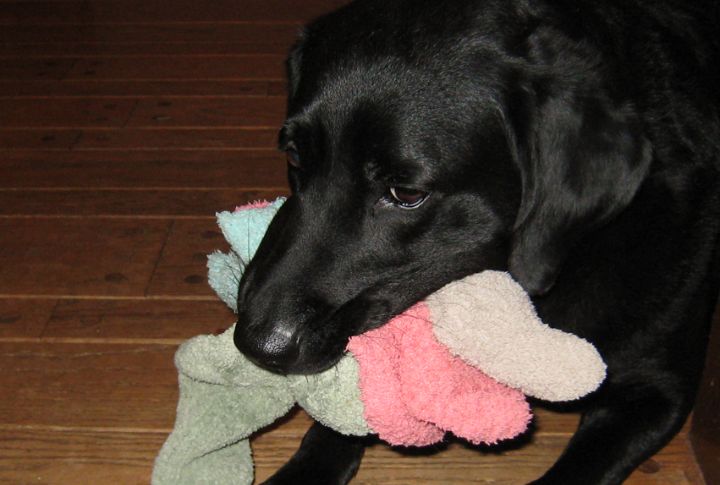
A single bout of vomiting is common. More than one in a short time—especially if your dog seems tired or avoids drinking—should raise concern. That kind of pattern might point to something like a blockage or poisoning. If your dog’s acting sluggish, don’t wait it out; these cases can escalate fast without treatment.
Can’t Get Up, Won’t Walk, Dragging Limbs

If your dog is struggling to move or dragging its paw, don’t brush it off as aging or a “weird moment.” Sudden stiffness can indicate nerve pressure or spinal irritation, especially if the dog was walking fine the day before.
Bloated Belly

Here’s the tricky one: a bloated belly without the usual pacing or dry heaving. Quiet swelling like this often points to hidden dangers like liver failure. You don’t always get dramatics with serious problems. If your dog’s belly looks rounder than it did yesterday, get a vet’s hands on it today.
Both Eyes Suddenly Look Wrong

A red, weepy eye isn’t always urgent, but if both eyes suddenly look irritated, it’s serious. Sudden irritation in both eyes may signal glaucoma or severe inflammation. These escalate fast and can lead to vision loss in hours. Frequent squinting or face rubbing means it’s already uncomfortable.
Scooting, Licking, And Butt Obsession

Scooting across the rug might look funny, but it’s usually a sign of discomfort. Impacted anal glands are the usual suspects, but spinal problems or parasites can cause it too. If you see nonstop licking or swelling near the tail, it’s not about cleanliness—it’s about pain.
Limping That Doesn’t Improve In 48 Hours
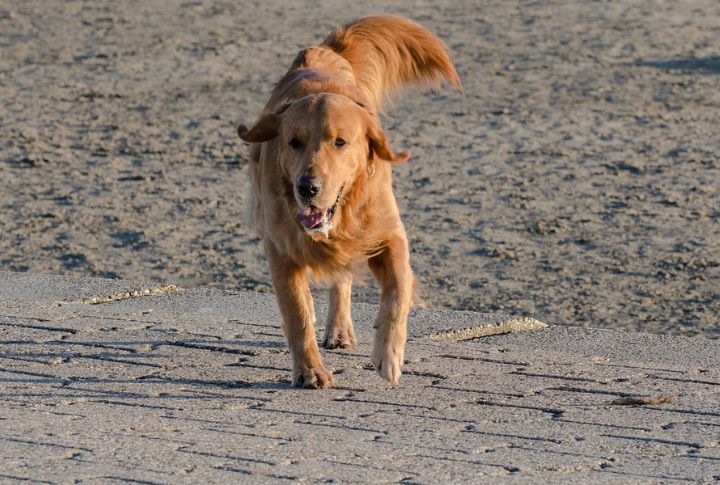
A lot of minor limps resolve with rest, but if your dog’s still favoring one leg after two days—or the limp comes and goes—it’s time for X-rays. Cruciate ligament tears are incredibly common and often misread as “they just twisted something.” Catching it early can prevent joint damage and chronic pain.
Refusing To Eat For More Than 24 Hours

A missed meal isn’t always worrisome. But when a food-driven dog suddenly turns away from their bowl, something might be off. It could be gut trouble or an infection making eating painful. They can’t tell you they’re hurting—but refusing food is often how they show it.
Excessive Drinking Or Peeing
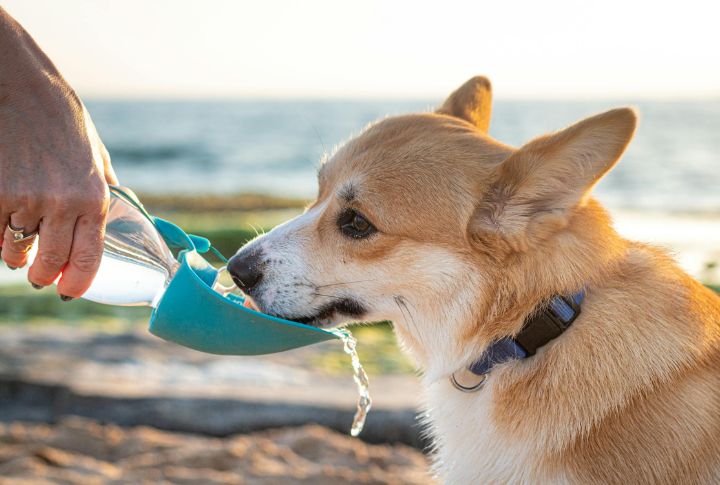
If the water bowl’s draining faster and indoor accidents start happening, pay attention. These changes usually mean something more serious is brewing, often tied to kidney issues or hormonal imbalances like Cushing’s. You’ll spot it first in their routines—bigger pee spots, more urgent bathroom trips.
Whimpering Without Obvious Injury

Dogs sometimes cry when lying down or getting up. These brief vocal cues can point to spinal inflammation or discomfort in the abdomen. If these sounds happen more than once or in similar movements, they’re often the only way dogs say something feels wrong.
Nonstop Scratching Or Chewing

If itching continues outside allergy season and bathing doesn’t help, there’s usually something deeper going on. Chronic scratching can stem from fungal infections, parasites, food sensitivities, or autoimmune flare-ups. And when your dog chews their feet or shakes constantly, they’re not just being fussy—they’re uncomfortable.
Discharge From Eyes, Ears, Nose, Or Genitals
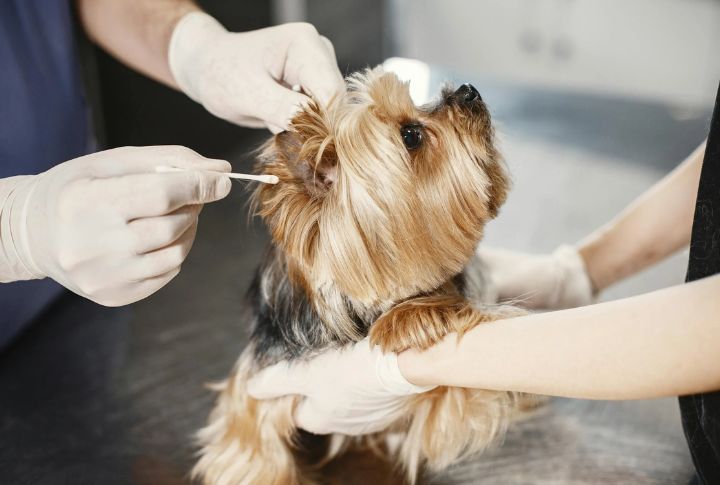
If something is oozing, your dog’s immune system is trying to push something out. Ear infections can escalate fast, especially in floppy-eared breeds. Genital discharge can signal pyometra (life-threatening in unspayed females). Nose or eye goop might look minor, but don’t let a week go by untreated.
Rapid, Unexplained Weight Loss
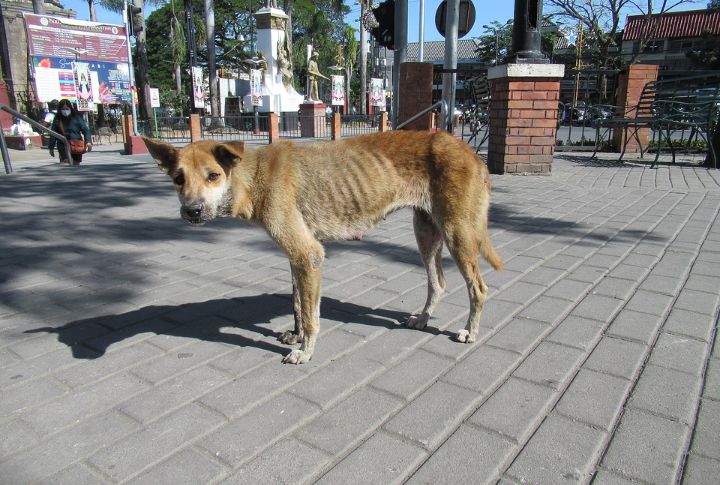
If your dog’s collar suddenly feels loose or you can see ribs that weren’t visible before, something is wrong. Fast weight loss rarely happens without an underlying illness. Even if they’re eating well, diseases like cancer or diabetes can quietly strip weight away. A full checkup is the safest next move.
Barking That Feels Off

You know your dog’s voice—how they sound when excited, when nervous, when they hear the mail truck. So when the pitch changes, or they start barking constantly at nothing, or even stop barking altogether, don’t dismiss it. Vocal changes often accompany respiratory illness, neurological issues, or pain that has nowhere else to go.
